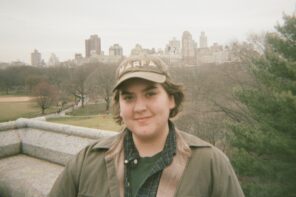Guest starring Adania Shibli’s Minor Detail.
An artist was trying to make art and it wasn’t easy. This artist got upset. He started beating the people he lived with. He started shoving them around and holding their necks close to the sink and trash can. I am an artist trying to make art with my uneasiness with domestic abuse. I keep thinking about it and trying to make art out of its ropes and blenders. I keep wanting to stream something. I keep leaving the scissors outside. This morning I read half of a novel that the Palestinian novelist Adania Shibli said she wrote over 11 years, in which a soldier an Israeli soldier rapes and buries I mean he kills he orders to be killed he buries her in the sand in the desert I mean Negev, and I sat on my patio obliterated/heaving about it about rape and rape/Israel and I guess Adania made art about a kind of domestic abuse when you’re a Bedouin and the desert is your domestic space. Rape is more than death, so I wondered how will I ever in my own art deal with anything and thinking then about domestic abuse…You’d think at this point I was abused in a house. You’d think that’s where this story is trending and that a coming confession is going to hop onto your face. My confession wouldn’t be like that! My confession of domestic abuse—that I did it? Had it? Suffered it?—would be like the sucking prong of a slug leg.
Here I was, this beaten woman trying to make sense of my life against the sense of the house. Did I run out of it? One or two times? Did I call 911 asking for pizza delivery hoping the operator was trained in this as the code? No I never did that. Did I say yes and yes and yes and yes and is yes meaningless? Yes.
Stories are not helps. They lack sustenance. As far as being beaten, it’s endlessness. There is endlessness inside of men. Stars are wearier than the men. How do you change the human?
But some people theorize in groups or at clubs that a redeeming thing about artmaking or stories in particular is that you end them. You can reach resolution. Things end and/or begin again.
Ok. I’ve been living with an abusive man. I go report him. The police detain him and friends encircle him in transformative justice tactics designed to get him to say he’s accountable for all the beatings. They surround him and hold onto him. He’s not trash. I go live with my cousin, a cruel type but crookedly redeemable in this instance. I smile unsure at her loud dinner parties (no masks) and beg off to sleep, eventually publishing my accounts and these stories are published in The New Yorker. Very impressive! What a good ending I find myself in the middle of but I find myself in the bathroom of The New Yorker offices because I’ve come up to shake hands with the editorial staff and anyone else who wants to come out for a handshake. Hey look who’s here! This story ends with me falling asleep by one of the toilets in the bathroom. I guess I got overwhelmed. I tried to be sociable, I said something to one of them out there, “A period is the biggest lie a sentence ever said,” and everyone said that was really good. Wow, where’d you come from kind of thing. I guess I got overwhelmed and I’m wrapped around this toilet and now a male editor is pissing almost directly onto my face which is a surprise. I’m in the wrong bathroom.
Caren Beilin is the author of the novel Revenge of the Scapegoat (Dorothy, a publishing project, 2022). Her other books are Blackfishing the IUD (Wolfman Books, 2019), Spain (Rescue Press, 2018), The University of Pennsylvania (Noemi Press, 2014), and the chapbook Americans, Guests, or Us (Diagram/New Michigan Press, 2012). Shorter prose appears in Fence, Territory, Dreginald, and The Offing. She is an assistant professor of creative writing at the Massachusetts College of Liberal Arts and lives close by, in Vermont.




